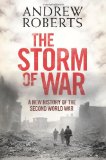 When my son Elliot was about 8, he developed a great interest in history, one that shows no sign of waning. I remember him admiring his father’s photographs at an exhibition when he was about 11. “You know, Dad, when your photos are on the walls at home, I don’t really notice them. But here, with everyone looking at them, I’m starting to notice them,” he said.
When my son Elliot was about 8, he developed a great interest in history, one that shows no sign of waning. I remember him admiring his father’s photographs at an exhibition when he was about 11. “You know, Dad, when your photos are on the walls at home, I don’t really notice them. But here, with everyone looking at them, I’m starting to notice them,” he said.
“Changed your mind about becoming a photographer?” Donn joked with him.
“It’s already too late for me,” he replied with utmost seriousness. Yes, by the end of Grade 5, the die was cast. He’s now 16, and he hasn’t wavered one iota. His two favorite periods to study are Medieval History and WWII. So when I got the chance to review a really thick and probably boring history of the Axis strategy, I knew who would love it. And I was right.
Me, I was just thankful I didn’t have to read it. But Elliot thoroughly enjoyed it, and would give this book five stars!
This is what he had to say about it:
The Storm of War is a great analysis of WWII. Andrew Roberts does a great analysis of the Axis Strategy and quickly points out the strengths and weaknesses of the Nazi Strategy.
I would recommend this book to anyone who wants to enhance their knowledge of WWII. Though long, it is well worth the read, and rarely gets boring. This book is well researched and thought out, and gives accurate and precise information. I was very surprised upon finishing this book to learn how easily the Axis could have won. If they had been a little more patient and had been a little more coordinated, they could have won the war without too much opposition. The Russians had weak strategy and poor commanders; the British were ready but didn’t have the resources to sustain prolonged conflict; and the United States was avoiding war and was unprepared militarily.
Whereas the Nazis had been preparing their army for years and had gained experience from the Spanish Civil War; the Italians were not quite as prepared but still had good equipment and experience; and the Japanese had a strong Navy and Air Force. With some patience and coordination (which the Fuhrer was desperately short of), the Axis would have found that the Allies were no real opposition to their plans for world domination. But decisions like halting the Panzers outside Dunkirk, fighting the Russians as well as the British, and not informing the Japanese of their plans led to the downfall of Hitler and his plans for global domination.
The Storm of War begins with the annexation of Austria and Czechoslovakia, as well as the invasion of Poland and Norway, and then continues chronologically. Roberts states the facts, gives background information and then gives his analysis of that particular event. I found many facets that he presented interesting: I had not known the full extent of Russian casualties due to lack of experienced commanders, and I knew little about the African campaigns. This book will vastly increase your knowledge of the war, and I strongly recommend it for anyone interested in WW2.
Elizabeth enjoys history but prefers fiction over thick and serious tomes. Fortunately, Elliot doesn’t. Read more of their interactions at her blog Planet Nomad. The story referenced in the opening paragraph is found here.
Good job Elliot!
(Elizabeth I wouldn’t want to read that either, but we do have some history buffs here, and these kinds of books make great gifts!)
My Mother & Father were both there during the war. She a nurse for the German Army, and Dad a US army medic. The stories they use to tell us were something. This book would be great reading.